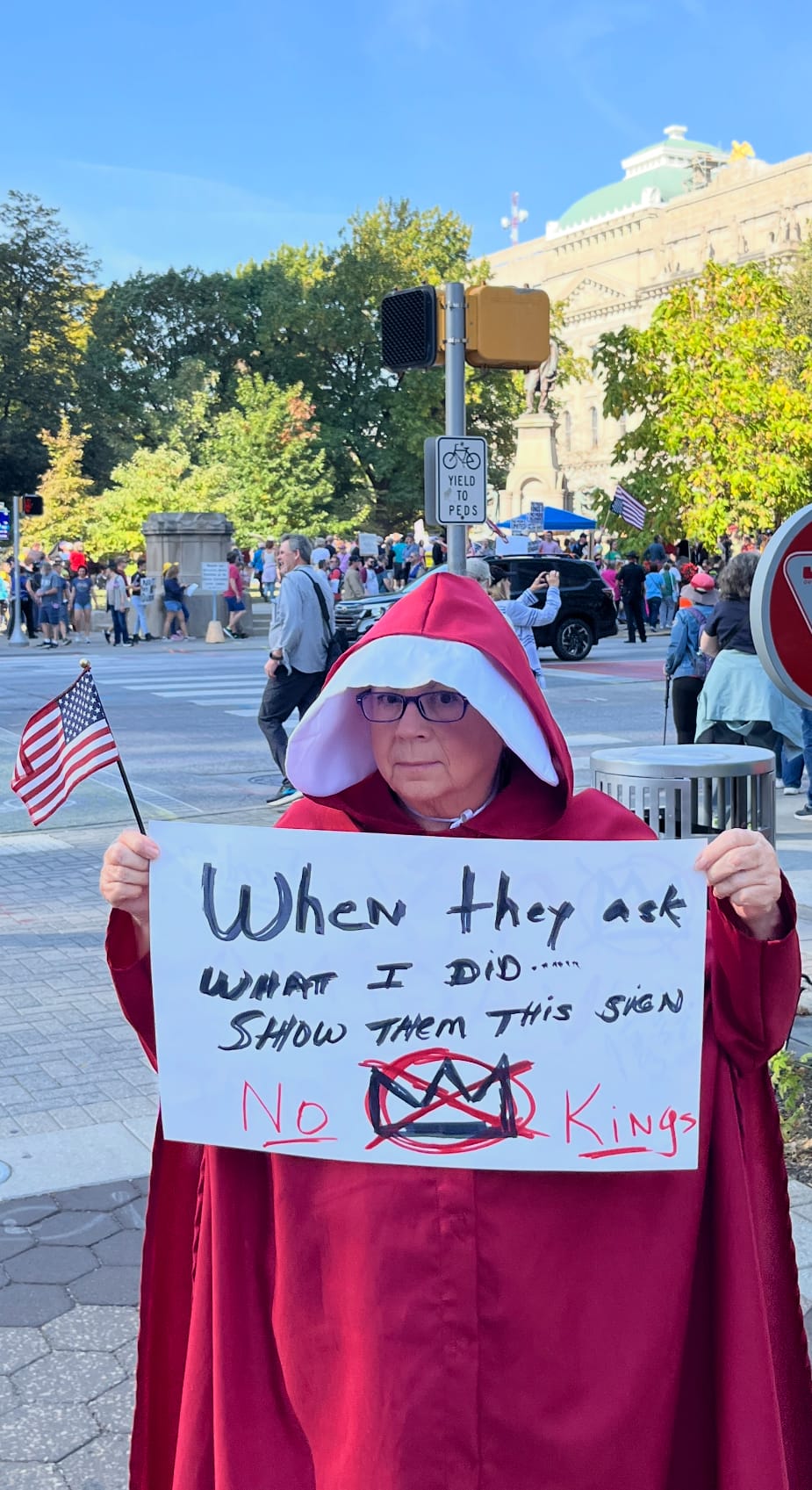After the March: Self-Care for the Fired-Up and Footsore

So you showed up. You marched. You chanted until your voice cracked, carried a sign until your arms ached, and stood shoulder-to-shoulder with people who refused to stay silent. You were one of the thousands—no, millions—who put your body where your convictions are. Congratulations, patriot. You’ve earned your blisters, your sore shoulders, and your moral hangover.
But here’s the thing about activism: it’s not a sprint, it’s a marathon—and your body, mind, and spirit are your only gear. If you don’t take care of yourself after the fight, you’ll burn out faster than a protest candle in a windstorm.
Let’s talk protest recovery, or as I like to call it, “Revolutionary Rest.”
1. Hydrate Like You Just Fought for Democracy (Because You Did)
All that marching, chanting, sweating, and adrenaline takes a toll. Before you collapse into your couch, grab a big glass of water. Then another. Toss in a slice of lemon if you’re feeling fancy, or pretend it’s a post-revolution cocktail. The goal: replace all that righteous rage sweat with actual hydration.
2. Feed the Body That Carried You Through It
You deserve something more than a soggy granola bar eaten on the bus home. Make a nourishing meal—something warm, grounding, and full of life. Protest energy burns calories and spirit, so recharge with comfort food that loves you back. Think soup, roasted veggies, a pile of carbs you don’t need to justify. Bonus points if you eat it while barefoot, sitting on the floor like a victorious revolutionary.
3. Soothe Your Battle Scars
Your feet? They’ve seen things. Soak them. Add Epsom salts or a few drops of lavender oil if you have it. If not, plain warm water does wonders. Your throat might be sore from yelling at injustice; honey and tea can help. And for that post-protest shoulder tension—stretch, breathe, and remember: those muscles carried a message.
4. Unwind Your Mind
After a day of confrontation—whether physical, emotional, or political—your nervous system is in overdrive. Take a quiet hour. No doomscrolling, no news, no “just checking one more update.” Sit outside if you can. Listen to birds instead of pundits. Journal what you saw, what you felt, and why you showed up. That reflection turns chaos into clarity.
5. Share the Love (Without Reliving the Rage)
Reach out to a fellow protester or friend who joined the movement. Send a message: “Proud of you. How are you holding up?” Sometimes the best self-care is community care. You don’t have to dissect every speech or replay every confrontation—just remind each other you’re part of something bigger, and that matters.
6. Recenter Your Purpose
Protests are high-energy, emotionally charged, and full of purpose—but they can leave you feeling both empowered and hollow once the adrenaline fades. Before bed, remind yourself: the march was a spark, not the whole fire. Activism lives in the small, steady choices too—calling a representative, donating, voting, teaching your kids truth. Rest is not quitting; it’s refueling for the next round.
7. Sleep Like the Republic Depends on It
Because it does. Tomorrow needs you rested, focused, and still slightly dangerous. So crawl under the covers, sore feet and all, and let your body absorb the day’s meaning. You stood up when it counted. You made history—now honor that effort with the rest it deserves.
Tomorrow, we keep building. Today, we heal.
Drink, soak, stretch, laugh. You fought for your country today—don’t forget to care for the person who showed up to do it.
TIP: As you visit some of the posts on social media you will see people mocking the protests..same as always. DON‘T FEED THEM! You are better than that 💯
Please share this Newsletter with others..someone REALLY needs this, OK?
Julie Bolejack, MBA
WEBSITE: juliebolejack.com
SHOP: mindfulactivist.etsy.com



